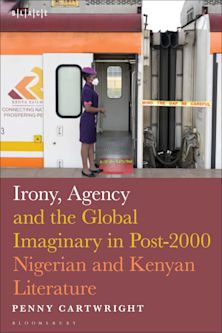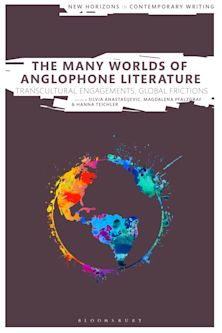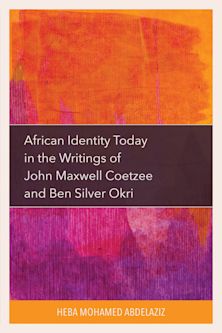- Home
- ACADEMIC
- Literary Studies
- African Literature
- A Practical Guide to French Harki Literature
A Practical Guide to French Harki Literature
Keith Moser (Anthology Editor) , Geraldine Enjelvin (Contributor) , Giulia Fabbiano (Contributor) , Jennifer Howell (Contributor) , Susan Ireland (Contributor) , Lucie Knight-Santos (Contributor) , Abderahmen Moumen (Contributor) , Kenneth Olsson (Contributor) , Régis Pierret (Contributor) , Laura Reeck (Contributor) , Matt Reeck (Contributor) , Laura Sims (Contributor)
A Practical Guide to French Harki Literature
Keith Moser (Anthology Editor) , Geraldine Enjelvin (Contributor) , Giulia Fabbiano (Contributor) , Jennifer Howell (Contributor) , Susan Ireland (Contributor) , Lucie Knight-Santos (Contributor) , Abderahmen Moumen (Contributor) , Kenneth Olsson (Contributor) , Régis Pierret (Contributor) , Laura Reeck (Contributor) , Matt Reeck (Contributor) , Laura Sims (Contributor)
This product is usually dispatched within 1 week
- Delivery and returns info
-
Free US delivery on orders $35 or over
You must sign in to add this item to your wishlist. Please sign in or create an account
Description
This interdisciplinary collection of essays unites researchers from many divergent fields in a common effort to explore the complexity, diversity, and paradoxes of French Harki literature. Given the growing body of literature written by, for, and about the Harkis, this project begins to fill a significant research gap. Although French Harki literature continues to evolve and diversify with each passing day, this book represents the first systematic attempt to delineate the significance of this emerging field within the larger context of Francophone literature, migration studies, and diaspora studies. Furthermore, the invaluable contributions of noted historians which open the volume offer an essential theoretical framework which places Harki literature in its appropriate historical context on both sides of the Mediterranean. As the title of this collection unequivocally implies, this volume was intentionally designed to foster meaningful collaboration with scholars from disciplines such as French/Francophone literature, history, anthropology, and sociology in a common effort to create intellectually rigorous essays which are also accessible to a broad audience. A Practical Guide to French Harki Literature is a much-needed point of departure that strives to encourage other researchers to contribute to the conversation regarding the past and present repercussions of the construction of the social group known as the Harkis.
Table of Contents
Acknowledgments
Introduction
Chapter 1. 1962-2014: The Historical Construction of Harki Literature
Abderahmen Moumen
Chapter 2. Writing As Performance: Literary Production and The Stakes of Memory
Giulia Fabbiano
Chapter 3.From the Colonization of Algeria to the Repatriation of the Harkis
Régis Pierret
Chapter 4. Making Sense of the Harki Past: Harki History, Collective Memory, and Historiography 1954-2013
Laura Sims
Chapter 5. Harki Daughters’ “Righting” Narratives: Resistance Identity and Littérature Naturelle?
Geraldine Enjelvin
Chapter 6. Creating Shared Memories in Four Harki Narratives
Susan Ireland
Chapter 7. Autofictional Testimony: Writing in Place of the Father in Zahia Rahmani’s Moze
Laura Reeck
Chapter 8. In the Name of the Father: In the Voice of the Other
Kenneth Olsson
Chapter 9. Two Literary Texts That Concretize the Goals of the “Harki Spring”: Taking Aim at the Nefarious Effects of Institutional Silence
Keith Moser
Chapter 10. Reconstructing Harki Sites of Memory in the Graphic Novel
Jennifer Howell
Chapter 11. Refinding/redefining familial bonds: Farid Boudjellal’s Le Cousin Harki
Lucie Knight-Santos
Appendix A: Interview with Mehdi Charef
Laura Reeck
Trans. Matt Reeck
Appendix B: English Translation of Excerpts from Moze
Laura Reeck
Appendix C: First English Translation of J.M.G. Le Clézio’s “The Child From Under the Bridge”
Keith Moser
Product details
| Published | Sep 24 2014 |
|---|---|
| Format | Hardback |
| Edition | 1st |
| Extent | 272 |
| ISBN | 9780739190098 |
| Imprint | Lexington Books |
| Dimensions | 9 x 6 inches |
| Publisher | Bloomsbury Publishing |
About the contributors
Reviews
-
[T]his volume fills a dire lack; as such and intended as a 'point of departure', it is a must-read.
French Review
-
Professor Keith Moser presents a welcomed interdisciplinary collection regarding the Harkis, native Muslim military auxiliaries who fought on the side of the French during the Algerian War of Independence (1954–62). The reader will discover an impressive group of specialists who contribute historical, anthropological, sociological, as well as literary studies in the anthology. This is an appreciated and valuable compilation for students and scholars of colonial and post-colonial studies, incomplete decolonisation, and especially French-Algerian anamnesis and amnesia. Moser’s translations are particularly well done. There is little to criticize...regarding this book’s principal merit, i.e., providing an analytical anthology surveying distinguished works dealing with the Harkis since 1962. Thanks to Harki activists and writers and now Professor Moser and his contributors, the so-called oubliés de la France/the forgotten of France are increasingly inoubliables/unforgettable.
The Journal of North African Studies
-
[A] very informative and much needed interdisciplinary volume. . . .[W]ell-written, detailed analyses of literary texts. . . .A Practical Guide to French Harki Literature is unquestionably an important, enlightening volume for all scholars conducting research on francophonie literature, on colonialism, on decolonization, on war, on immigration, on identity, on Algeria and on other such topics.
International Journal Of Francophone Studies
-
Bringing together an impressive array of scholars, Moser’s interdisciplinary volume makes a valuable and accessible contribution to the emerging field of Harki studies.
Claire Eldridge, University of Southampton
-
A Practical Guide to French Harki Literature engages with a crucial yet still overlooked topic from a combined historical and literary perspective. Its contributions lead the way for a systematic study of Harki literature in the larger context of contemporary French-language writing.
Oana Panaïté, Indiana University-Bloomington



































